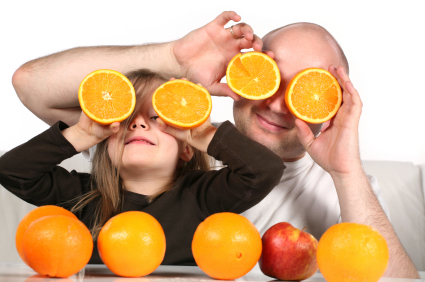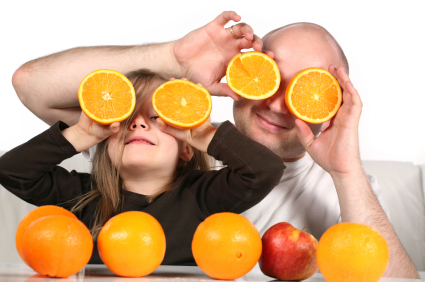 Sometimes, you just want to get your hands on some food and goof around. Don’t worry; it just means you’re human. Sometimes, I cook when I’m hungry. Then there are those times I find myself heading into the kitchen with a strong drive for … well … nothing in particular. And I’m not even hungry. I just want to prepare some food. That’s all. I want to mess with food. And that can lead to an extra unneeded meal.
Sometimes, you just want to get your hands on some food and goof around. Don’t worry; it just means you’re human. Sometimes, I cook when I’m hungry. Then there are those times I find myself heading into the kitchen with a strong drive for … well … nothing in particular. And I’m not even hungry. I just want to prepare some food. That’s all. I want to mess with food. And that can lead to an extra unneeded meal.
We humans do more and more complex food manipulation and preparation than any other creature. I speculate that the drive to play with our food — to handle, shell, peel, pound, grind, cut, cook, and carry food — is built into our genes. A couple of decades ago, it would have been thought that there has not been enough time since we began complex manipulation of food for evolution to act on our behavior.
Now, however, we realize that the apparently relatively slow rates of evolution displayed in the fossil record actually often represent long periods in which nothing much was happening interspersed with periods of rapid evolutionary change. In fact, serious evolutionary change can occur in just a single generation or two, as is graphically demonstrated in Jonathan Weiner’s The Beak of the Finch: A Story of Evolution in Our Time. In addition, from archaeological evidence we now realize that we have been seriously playing with our food for lots longer than we initially imagined.
We have been leaving our cutting-tool marks on the bones of other animals for about 2.5 million years or more. We have controlled fire for more than 300,000 years. We’ve had ovens for at least 250,000 years. And for more than 12,000 years we have been breeding and using agricultural crops, many of which are inedible without cooking. (See the discussion by Richard W. Wrangham on the impact of cooking on human evolution in “Out of the Pan, Into the Fire: How Our Ancestors’ Evolution Depended on What They Ate,” in Tree of Origin (edited by Frans B. M. de Waal).
We have obviously had plenty of time to evolve a drive to play with our food. Maybe when, as kids, we take a piece of Wonder bread (food already played-with by someone else) and we press and roll and play with that bread ourselves until it is a tiny marble-shaped ball, we are following our deepest and most honorable of instincts. Maybe playing with our food is what made us human.
We have sophisticated biochemical and hormonal “satiety” mechanisms that help us determine how much and what to eat. But are they the whole story? Based upon my own reactions, I think some of our satiety mechanisms are more simple-minded. I seem to want variety, for example. A one-pot meal is not as satisfying to me as the same amount of calories spread over several courses. This is true even when the “courses” are big chunks of meat and vegetables dipped out of that same stew.
For me, jaw exercise also matters. A crunchy carrot or two with a meal seems to contribute to my satisfaction all out of proportion to the calories or stomach space involved. A chunk of chuck roast cut and cooked steak-style is tough and takes serious chewing work. But it is much more satisfying to me than a much larger piece of tender sirloin. I’ll overeat the sirloin. But I can be satisfied by a much more modest piece of the chuck.
I also tend to overeat the delicious bean soup on that day I effortlessly thawed a portion from the freezer, compared with the day that I made the soup from scratch myself. The act of preparing food seems to actually be one of my satiety mechanisms. That is, to avoid overeating, to feel satisfied with normal, healthful amounts of food, I have to play with my food.
Today, however, many people are being deprived of the opportunity to play with their food. Once upon a time, everyone would have picked and peeled their own fruit and caught for their own fish. These days, one person usually cooks the meal. In addition, because of the widespread use of processed, low-labor foods, cooking is also often minimized, even for the “cook.” And increasingly, we eat out, order take-out, or go to fast-food restaurants. Perhaps we tend to overeat fast food not just because of the portion sizes or contents, but also because we didn’t fix it.
I’ve started to see cooking as a way to control my weight. I prepare all my food myself from scratch. I serve the occasional handful of nuts in the shell along with pliers to open them. And whenever I find myself heading for the kitchen when I am not actually hungry, I don’t let my drive to play with my food sabotage me into extra meals. Instead I prepare something that’s going to take a while: beans, a complex stew, baked potatoes, polenta, or cornbread made from scratch (starting by grinding the corn). I indulge my desire to play with my food by fixing a meal that won’t be ready until much later when I am actually hungry.



